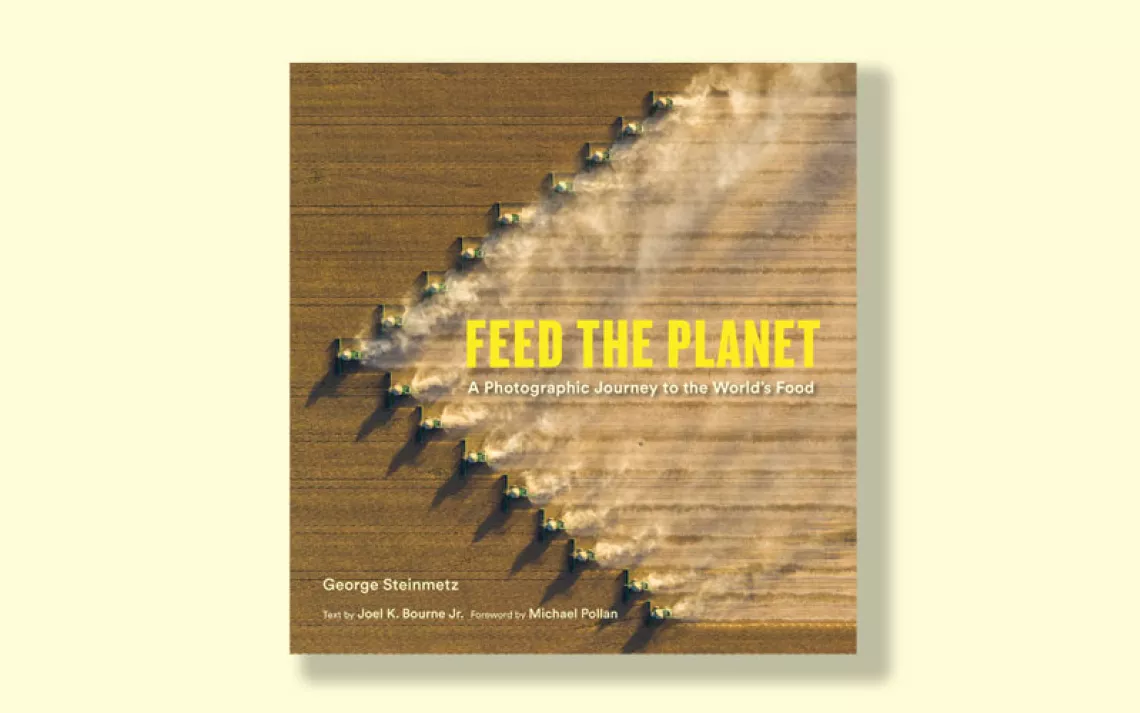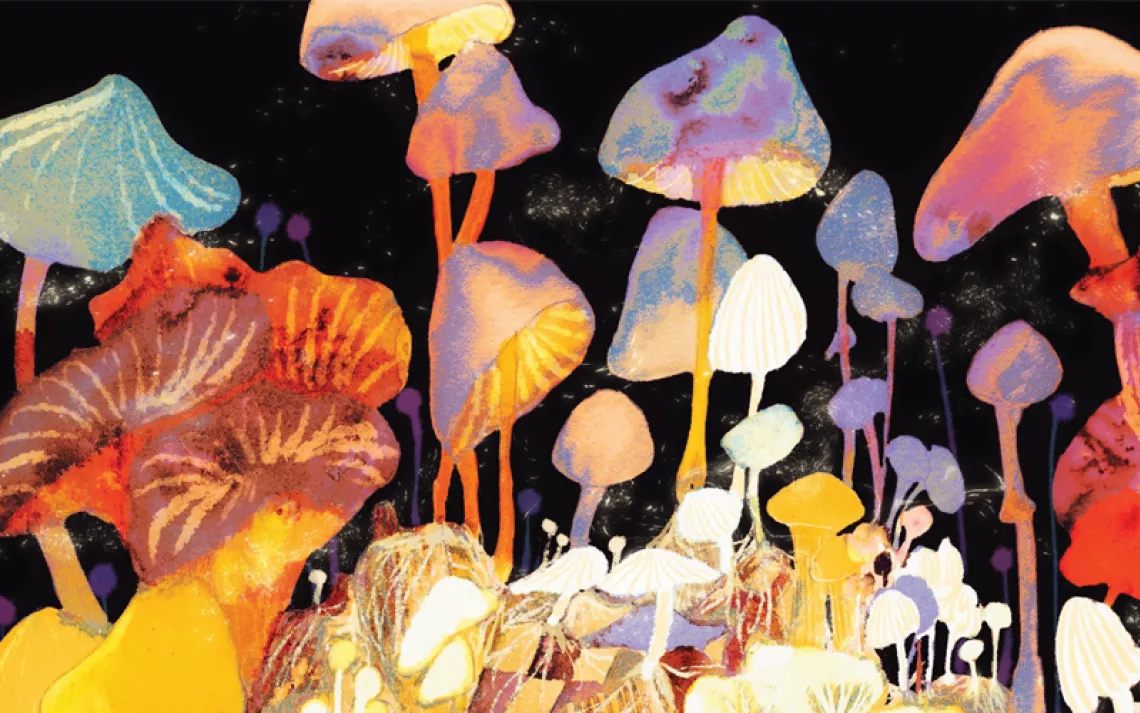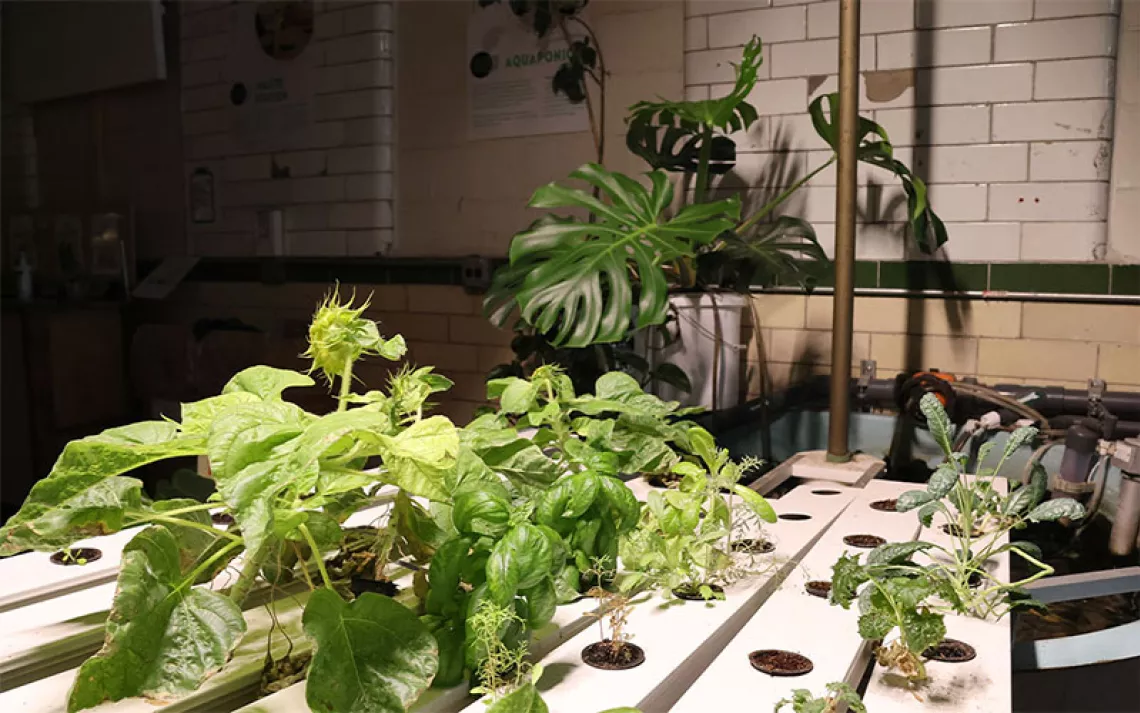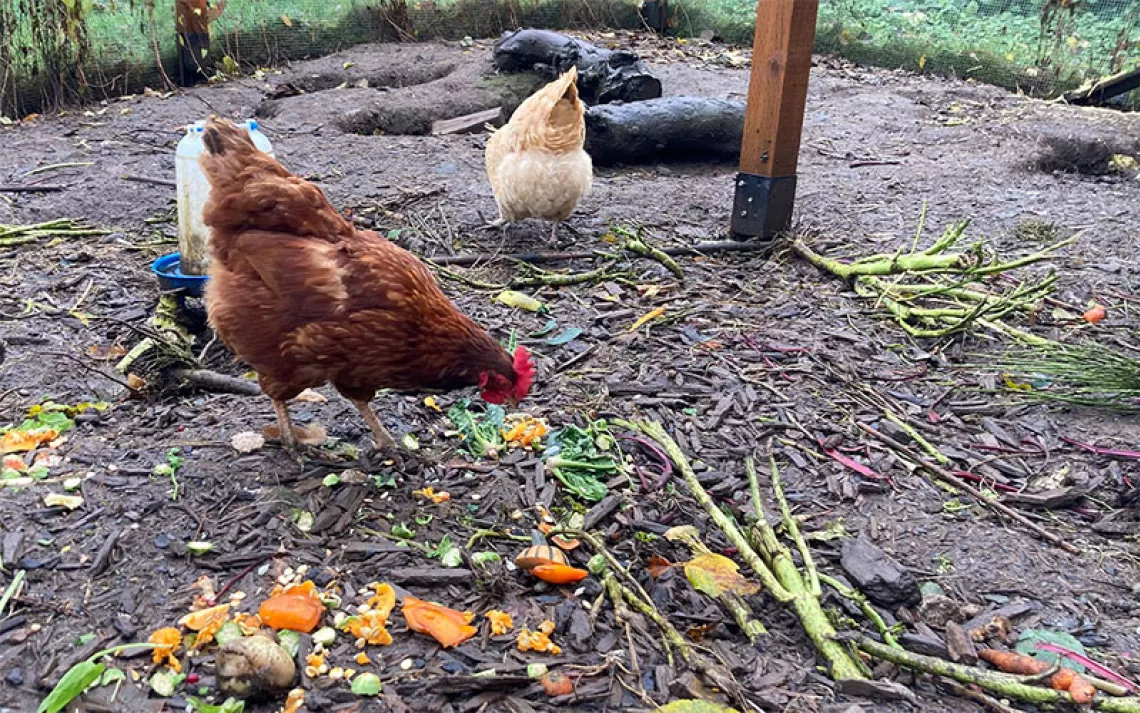A Tale of Two Posoles
Dream dinners from "The Berkeley Bowl Cookbook" and "This Immeasurable Place"
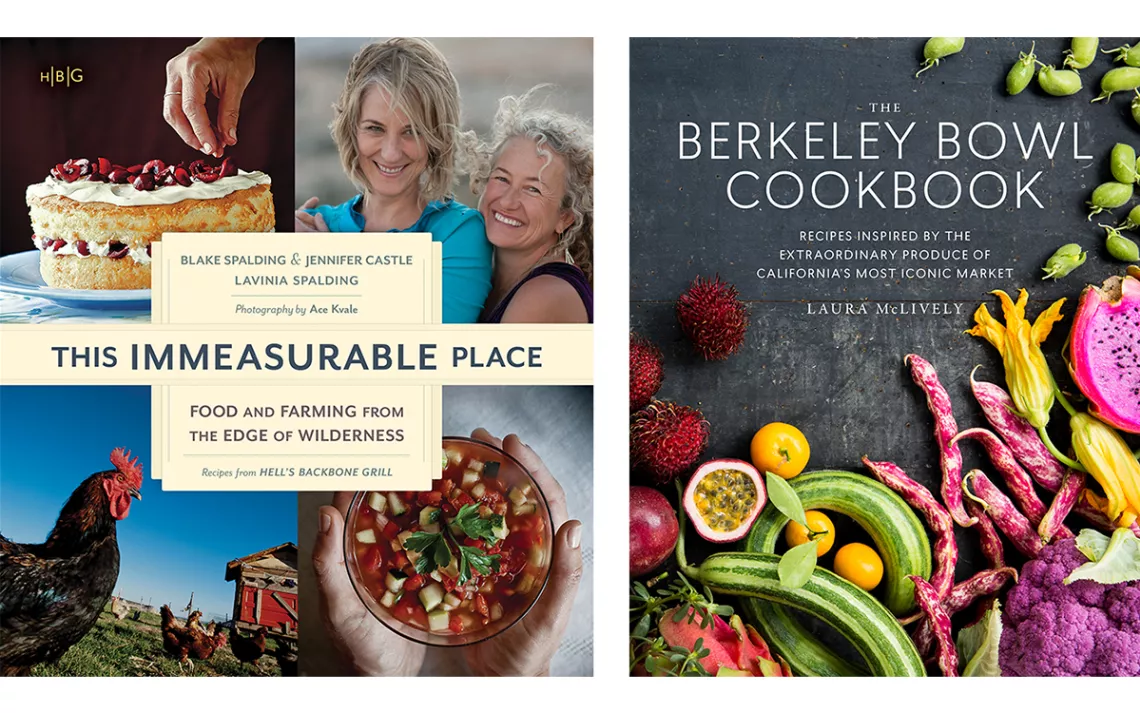
Cookbooks tend to be aspirational: If only my dinners could look so delicious! If I lived on the Côte d'Azur, I'd be eating that for lunch, too! The tendency is even more pronounced in cookbooks with an environmental bent: Someday I'm going to be ready for a cricket-based diet! I wonder if I could raise chickens on the fire escape? Not that there's anything wrong with exploring cricket meal (I'm told it has many applications) or animal husbandry in confined spaces. Successful cookbooks are like new clothes; they open up new possibilities for how to be in the world—or, at any rate, for how to eat there.
For readers of a publication like Sierra, there could hardly be a more appealing vision than that presented in This Immeasurable Place: Food and Farming From the Edge of Wilderness by Blake Spalding and Jennifer Castle, with Lavinia Spalding (HBG Press, 2017). The appealing comfort food from Hell's Backbone Grill hits every eco-base. The chefs/owners/authors' restaurant is a farm-to-table operation in Boulder, Utah, right outside the Grand Staircase–Escalante National Monument (recently dramatically downsized by President Trump). Many of the ingredients come from the restaurant's six-and-a-half-acre farm and straw-bale greenhouse; the beef is grass-fed and grass-finished; the eggs are from their (unconfined, free-ranging) hens; the organicness of the ingredients is taken for granted; and the entire operation is conducted “following Buddhist principles, with a commitment to sustainability, environmental ethics, and social and community responsibility.”

Sign up to receive Sierra News & Views
Get articles like this one sent directly to your inbox weekly.
With this action you affirm you want to receive Sierra Club communications and may vote on policy designated by the Sierra Club Board.
You can learn as much as you care to know about all of the above, because this is a very chatty cookbook, with essays by and about the chef-owners, the restaurant, the farm, the farm manager, dirt, the process and challenges of cooking in the various seasons, foods to avoid, juniper berries, and the authors' favorite books. Even photographer Ace Kvale (and his dog, Desert Dawg) gets a lovely appreciation from veteran Southwestern author Craig Childs, and the foreword is by no less than Bruce Babbitt, the interior secretary under President Bill Clinton who attended the birth of the neighboring monument (and was hung in effigy in nearby Escalante for his pains). Hell's Backbone Grill has clearly been the site of a lot of celebratory dinners after long hikes in the monument, which has won it a lot of friends.
This Immeasurable Place is as much for curling up in a chair and lapsing into Southwestern reveries as it is about cooking. The recipes—organized as so many cookbooks do these days, by the season—are homespun and inventive, leaning on garden vegetables, lots of cream and butter, lively spicing, and creative turns on regional Southwestern dishes. Tamales dolmades, for example, are chicken tamales cooked in grape leaves like dolmas; juniper lamb posole is loosely based on a traditional hominy-and-mutton stew called noquivi. (If you haven't made posole from field corn before, this might not be the place to start; the process requires rather more hand-holding than is offered here.) If you were to make nothing else, I would recommend the red chile sauce (although I had to use regular old New Mexico chile powder rather than the authors’ beloved Chimayo). Versatile and addictive, it has the power to transport you from wherever you may be to the redrock desert.
The subtitle for Laura McLively's Berkeley Bowl Cookbook (Parallax Press, 2018) is “Recipes inspired by the extraordinary produce of California's most iconic market”—the eponymous Berkeley Bowl, so called because its original home was in an old bowling alley. Rather than back-to-the-land rural romanticism, the aspiration it holds out is proximity to the incredible bounty of a store like the Bowl, which grew from a small Japanese-tilting produce market to a bustling local institution. Instead of buying from big warehouses like other groceries, owners Glenn and Diane Yasuda scoured local produce wholesale markets in the early morning hours and struck relationships with local farms and suppliers, eventually suggesting to the farmers new varieties to try. As a result, the Berkeley Bowl's two stores now feature a head-spinning spectrum of produce, both familiar and exotic. Berkeley has a very diverse population, and shoppers from scores of countries come to the Bowl to find the specialties from home: durian, horned melon, burdock root, galangal, shiso.
McLively makes it her mission to introduce the less-common ingredients to a wider audience, not by popularizing traditional recipes but through brand-new preparations of her own devising.
As I write, for example, I'm finishing off the last of her delicious charred cactus and black-eyed-pea chili, through which I finally learned (after many less-successful experiments) how to properly prepare nopales, the de-spined paddles of the prickly pear cactus. (The secret is to thoroughly char the paddles under a broiler or on a grill.) McLively also coaxed me through my fear of fiddlehead ferns by turning them into tempura, served with a sriracha crème fraiche and a hitherto unknown (to me) Japanese spice blend called togarashi. Her own quick version of pozole substitutes chayote, a small Mexican squash, for the traditional pork or lamb. Green garlic, available for a few weeks in the spring, pairs with leeks, potatoes, and spinach for a refreshing soup, topped with a lemon and cardamom-infused Greek yogurt.
As a nod to cooks not fortunate to live close to the Bowl or a market like it, McLively helpfully suggests substitute ingredients when possible: green bell pepper for nopales, asparagus for fiddleheads, zucchini for chayote, ramps or spring onions for green garlic. Back at the mother ship, however, her cookbook is already changing local shopping habits, as evidenced by newly prominent bins of mangosteens, sour plums, and passion fruit. I made a fruit salad the other day, and casting about for something to perk it up, I happened to notice the jar of pickled kumquats I'd put up the other day, simply blanched in rice vinegar with black peppercorns and cardamom. McLively's mission is accomplished: This previously neglected fruit is now a happy part of my repertoire. And if you can't find a kumquat, try a tangerine.
 The Magazine of The Sierra Club
The Magazine of The Sierra Club
